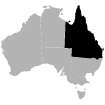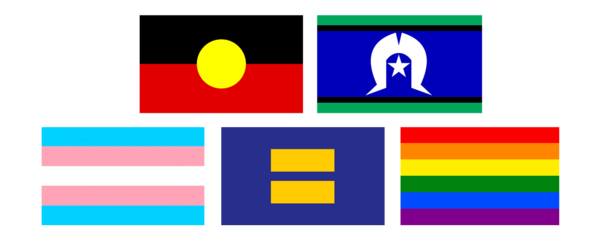Meet rising games developers Tex Barnes and Mars Bleach (known collectively as Owl Machine), the Screen Queensland Games Residency alumni behind Key Fairy. After they recently won the Queensland Games Festival People’s Choice Award for a second time, we caught up with Tex, who shared their thoughts on navigating the industry as a queer studio, developing Key Fairy and their journey through the residency.
Tex (they/them) is a game designer and generalist developer, with an interest in designing novel mechanics and unique experiences, and Mars (she/her) is an illustrator, designer and programmer. She has an interest in the importance of play in our everyday lives and exploring how technology integrates with and informs art.
Tex and Mars’ interests have manifested in the enchanting, genre-bending Key Fairy which is described as a ‘hand-drawn pacifist folkloric bullet-hell’ that sees players grapple and dance around monsters to collect their shattered stars.
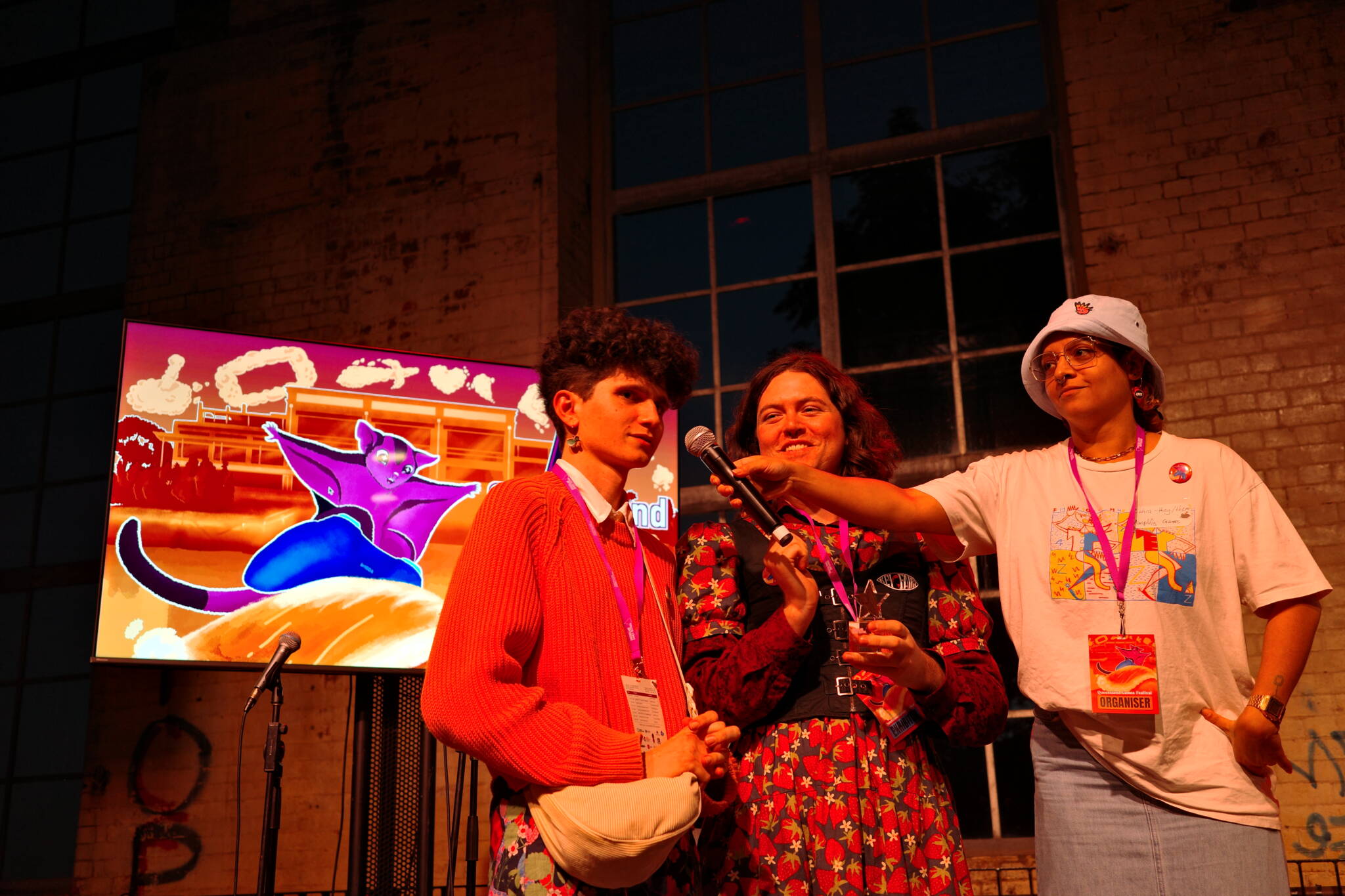
“I think the game is built on a few strong limitations. We wanted to explore what it’d look like if you took a traditionally violent genre, like a bullet-hell, and removed the ability to attack. This reframes the gameplay to focus on movement and evasion, but it also opens up a completely different narrative and thematic space,” Tex said.
“This is true in the aesthetic and world design as well. We have strong limitations that push us into new design spaces that are super exciting. And the result is this unique experience, that sort of doesn’t feel like anything else, which we are exploring as much as designing!”
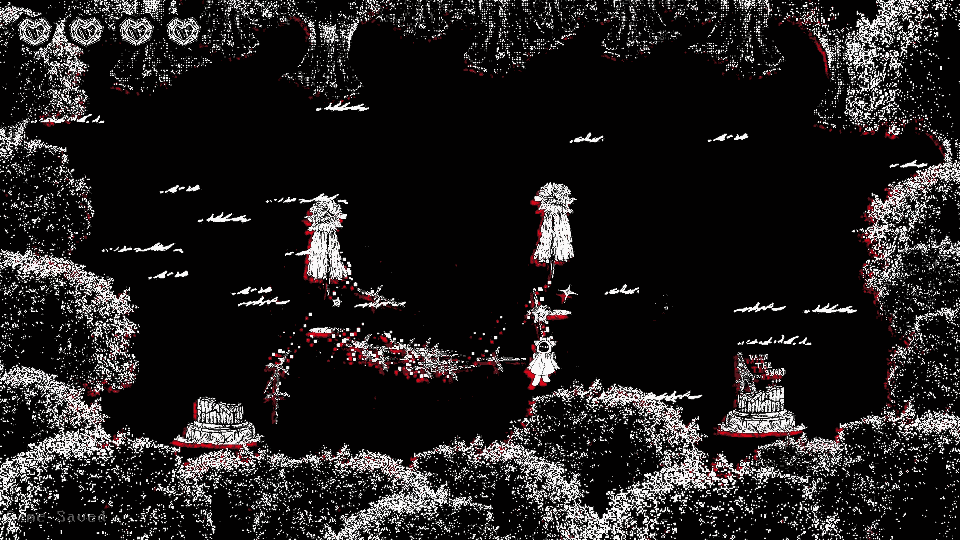
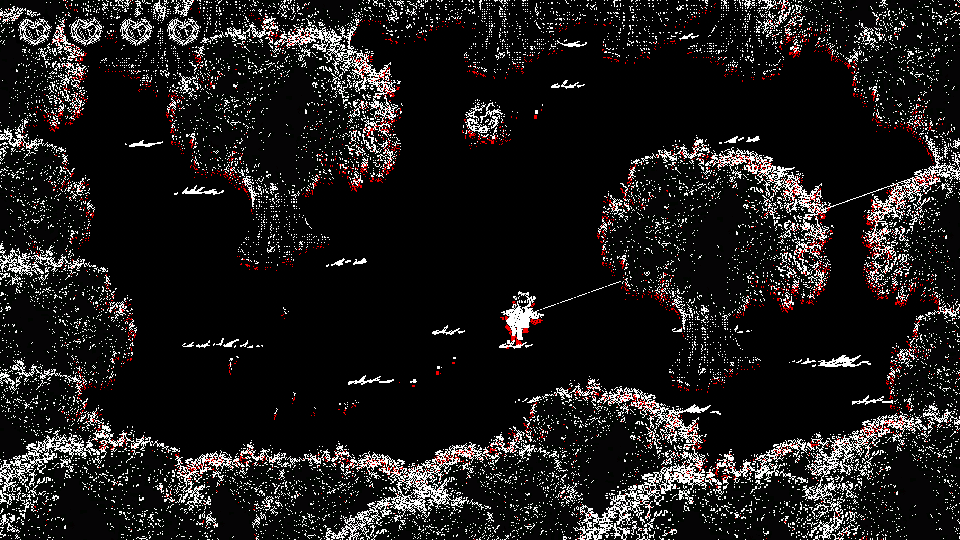
The distinctive art style of Key Fairy is crafted by Mars, who hand-draws every whimsical frame. She grew up doing ink illustrations and pens the designs on paper before digitally scanning and editing before adding to the game engine.
“Some characters are made like paper puppets, each part separated and then put together and animated directly in the game,” Tex said. “The art style is heavily inspired by fairytales, as well as old school 1-bit pixelated games and early TTRPG graphic design, which combine to create a collage of styles and aesthetics unified by the black and white colour palette.”
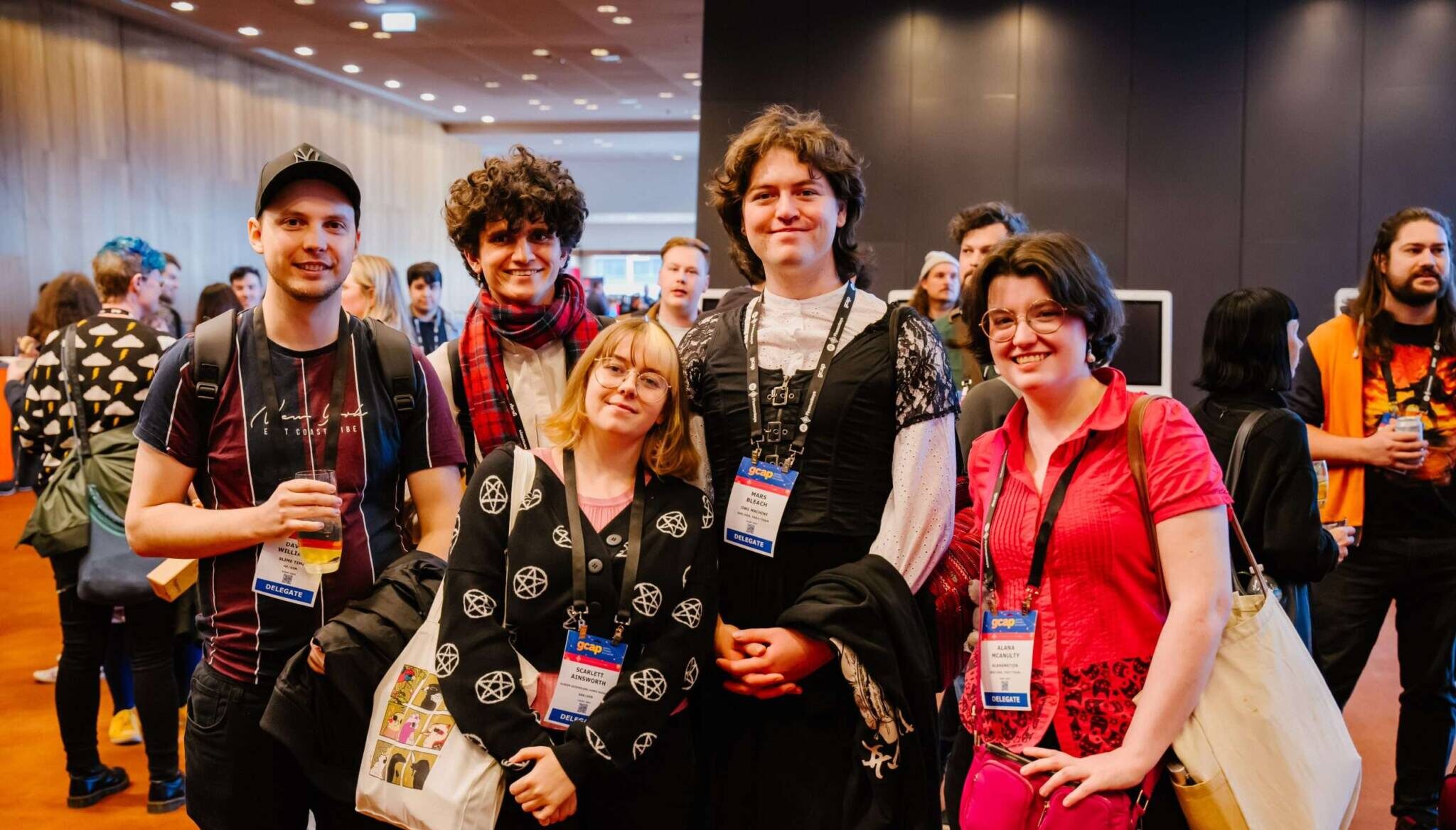
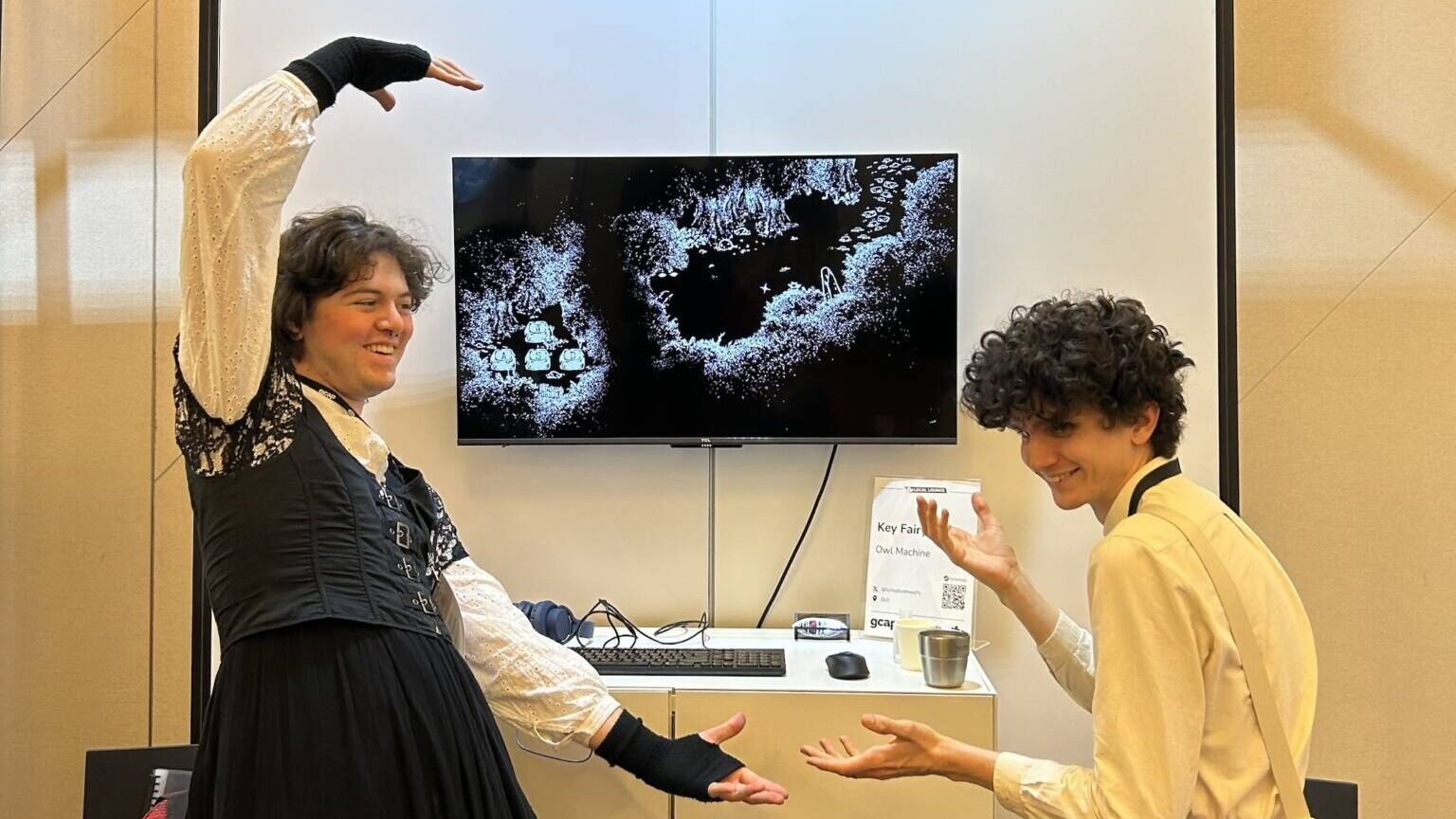
Tex and Mars focused on Key Fairy during the 2024 Screen Queensland Games Residency program. They credit the time as a huge influence on the game, shaping it through collaboration with the other residents.
“It was wonderful to have a collection of smart people with really diverse skill sets to bounce off and playtest with. More broadly, the residency program provided tonnes of networking and skill development opportunities, which really helped us as individual game-makers.”
Key Fairy has since received support through Screen Australia’s Emerging Gamemakers Fund and Screen Queensland’s Games Grants, enabling the duo to focus full-time on development. Tex said that Key Fairy as we know it wouldn’t exist without that investment.
“Receiving funding has allowed us to develop the project in the way we want to make it, without a publisher looking over our shoulder and it’s given us an amazing foot-in-the-door which is hard to get as an early developer.”
Owl Machine also recently announced the release of the Key Fairy demo through Screen Australia’s Frosty Games Fest.
“The reception has been amazing! It’s been really nerve-racking to have the game out there, but the response has been overwhelmingly positive! We are making a niche game, so it has been lovely hearing from people who really connected with the experience! It’s very motivating to know that there are people who want to play it,” Tex said.
The Australian games community has become a place where LGBTQIA+ people are championed and find belonging. We wanted to hear more about what makes the industry a safe space for people of all backgrounds and Tex’s own experience joining the games community.
“It’s lovely that so many queer people can relate to our work, and it’s really nice being able to connect with other artists and our audience in a way that feels very personal. The games scene in Brisbane is very queer, and there’s a real sense of community that supports and informs our work and our personal practice.”
“It comes down to the choices and experiences of the people building those community spaces. Organisations like IGEA, or BRIGDA and Squiggly River in Brisbane, are run by queer people, and allies, who take inclusivity seriously, which goes on to shape the broader games scene to be more inclusive and open,” they said.
“In addition, games development is becoming increasingly accessible, and the ability to enter the industry from such a wide variety of skills allows people to circumvent a lot of the structural barriers other industries have.”
The Key Fairy demo is now available to play on Steam and you can follow Owl Machine on TikTok and join the Discord.
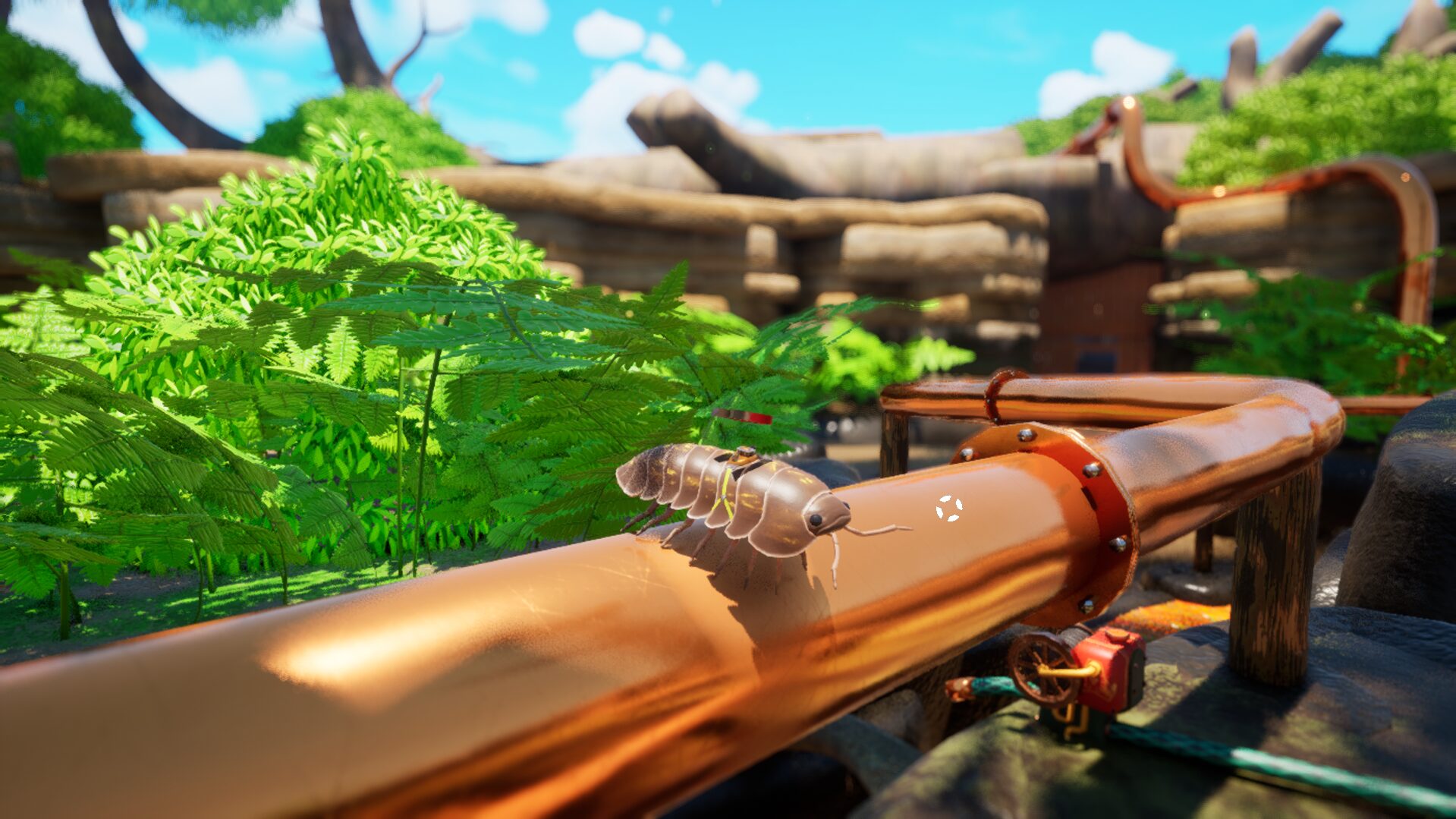
Games Grants close Wednesday 13 August
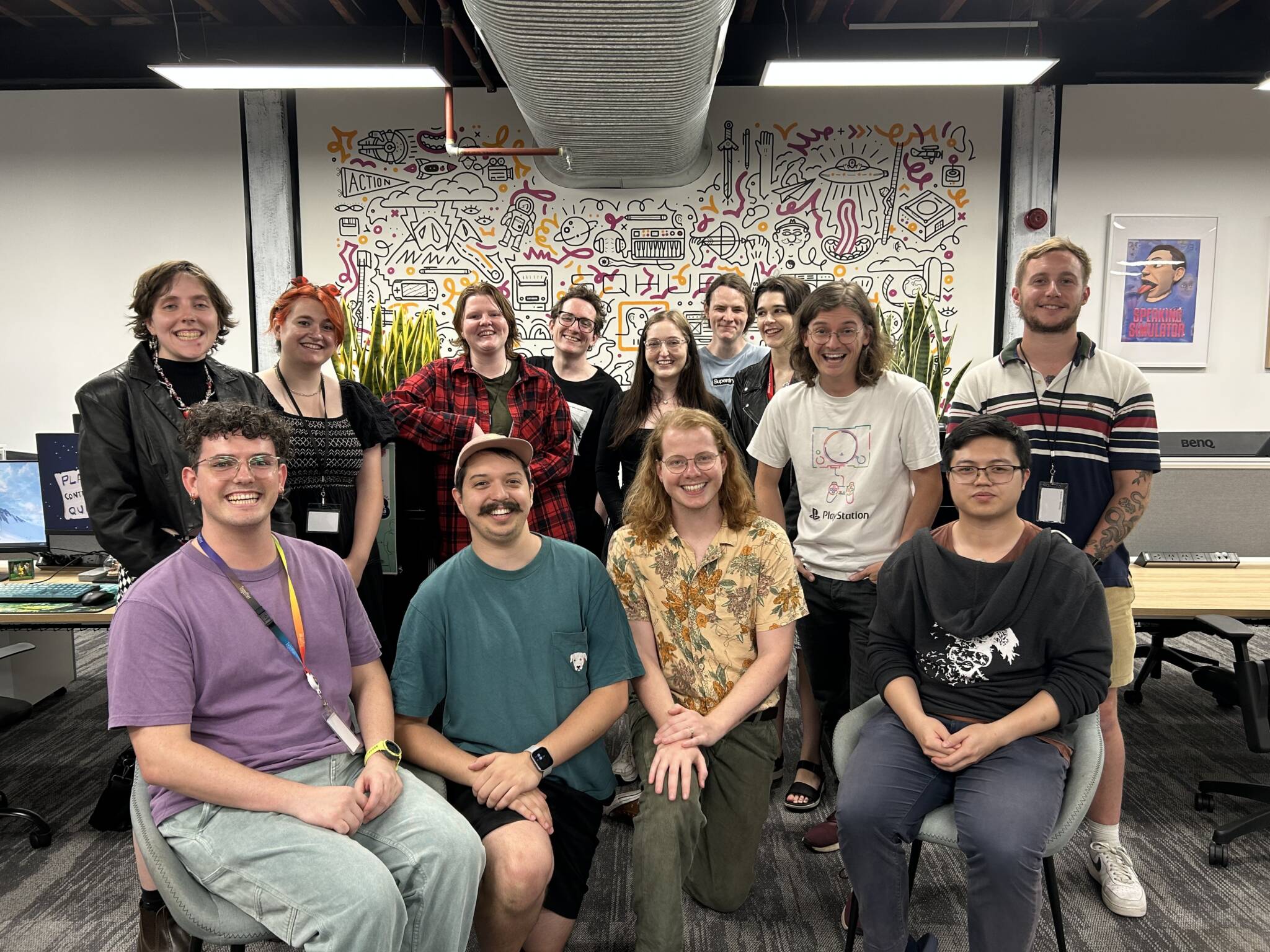
Screen Queensland’s Games Residency program



